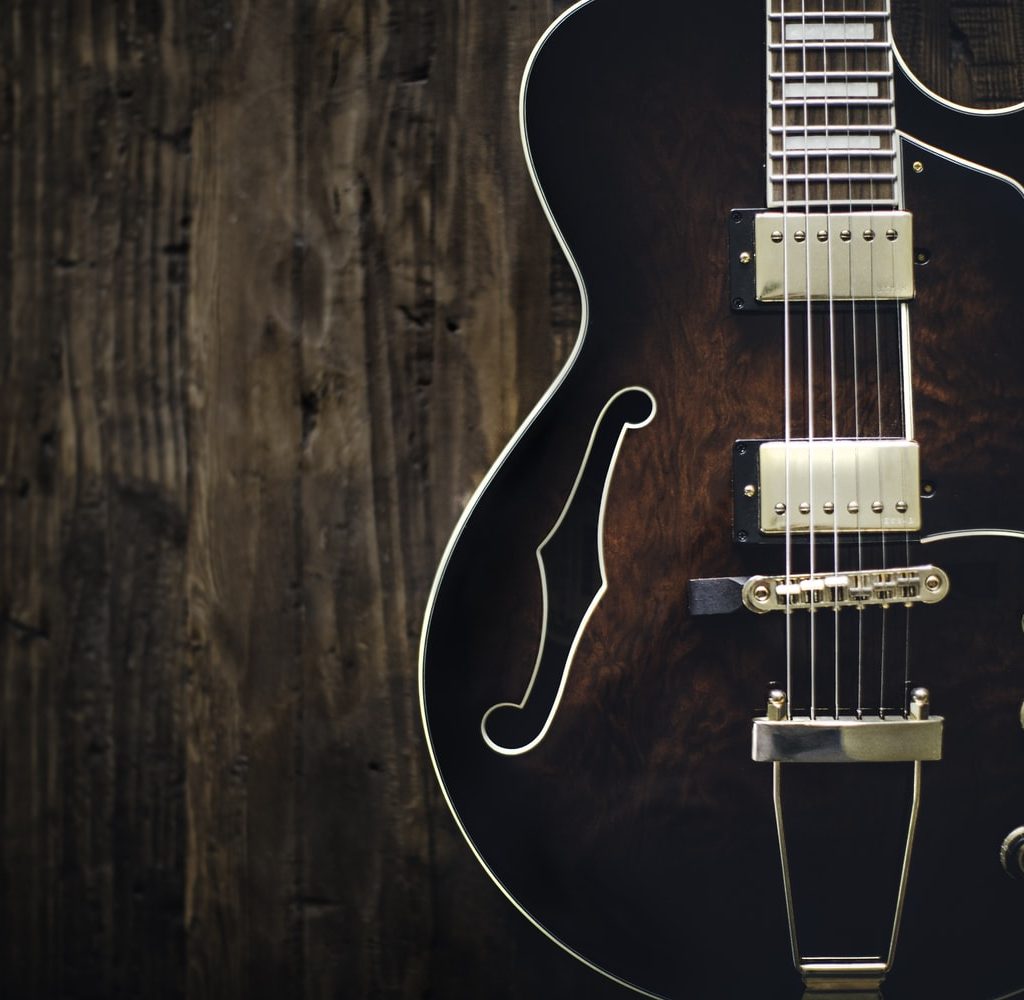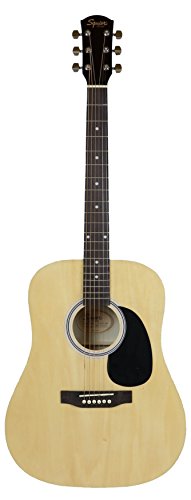Hey! We know it might look a little challenging at first but becoming a pro guitar player just like your favorite guitar hero is totally possible. However, it will take some work. So, in this article, we’re going to give you 13 tips on how to get good at guitar.
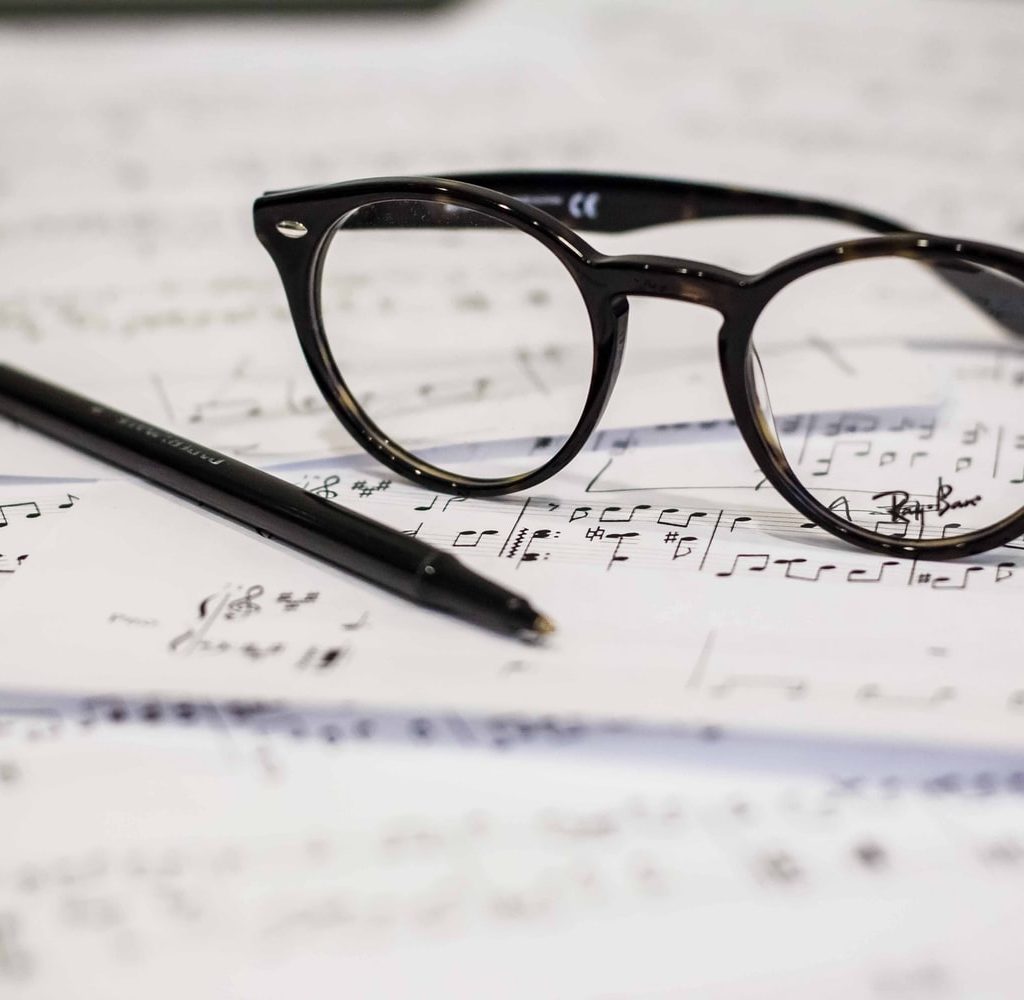
So that this article is easy to follow, we’re going to separate these 15 tips into different sections. Without further ado, let’s dive right into it:
Table of Contents
How To Practice — How To Get Good At Guitar
As cliche as this might sound, practice truly makes perfect. However, that would only happen if you’re practicing the right way. So what is the right way to practice? Let’s find out.
Tip 1 — Set Practice Goals
The biggest problem with many guitarists is that when they want to practice, they simply plug their guitars into their amp and jam away. While that is good sometimes (as we would soon see), if you do this every time, you won’t learn anything new.
When you jam, you are basically making music with all the skills that you already have. As a beginner, you want to be learning as many new skills and techniques as you possibly can. Therefore, it’s a lot better if you have goals for things you want to achieve from a practice session.
If you’re trying to learn a song, learn a new scale, riffs, or pick-up pattern, then write it down. Get lessons online relating to what you want to learn, and practice that one thing until you’ve learnt it and can incorporate it into your play.
Tip 2 — Practice A New Thing Every Day
As much as it’s good to practice a single thing for weeks until you perfect it, it can become frustrating and discouraging. Instead of that to be the case, it would be much better if you try to learn a new technique, riff, or any cool thing, every single day.
This way, while you have a bigger goal that you’re practicing, you have little things you’re learning on the way that all still make the entire experience fun and enjoyable.
Tip 3 — Record Yourself
So you’ve just learned that new sick riff. Awesome, right? Now right that riff down and video yourself playing it. When you watch the playback of you playing the riff, not only are you more open to hearing the little mistakes, it also registers the riff even more and makes it harder to forget.
You can use this technique for whatever new thing you learn. Whether it’s a new riff, a new pick-up pattern, a new song you just covered, whatever it is, take a video of yourself playing it.
If you don’t know how to record yourself while playing the guitar, don’t worry, we’ve got you covered. The video below is very explanatory and shows you an easy and excellent way to get professional guitar recordings of yourself, by yourself.
Tip 4 — Practice Like You’re On Stage
There is a very bad habit that many guitarists have that can be very damaging to your progress. Most times, you’ll see guitarists sit while practicing or practicing with headphones. These are two things that are very unlikely to happen on stage and so they shouldn’t be happening when you’re rehearsing either.
If you always rehearse sitting down, you won’t be exercising to create the muscle strength and endurance it requires to stand and play an entire show. As much as it is more comfortable to just sit and play when it’s a serious rehearsal you definitely should get your butt off the seat or amp. No sitting on amps too.
As for the headphones, we know that it might be quite a chore especially if you live in an apartment and don’t want to disturb your neighbors. If that’s the case for you, then fine, you can use a headphone. However, whenever you get the chance, practice without them.
Practicing without headphones would give you a proper feel of what you would sound like in a physical space, which is what you would be playing in as a professional.
Tip 5 — Get A Metronome
No matter how crazy your riffs are, or how awesome your guitar looks, nobody is going to want you on their stage if you cannot hold a simple groove. Maintaining the timing of the music is a skill that many guitarists lack, including some professionals.
Once you practice without a metronome, you would be going on and off timing effortlessly and you wouldn’t even notice. Which is simply disastrous.
With a metronome sound that’s higher than the output of your guitar, or at least equivalent, it would be much easier to practice timing. This would increase your ability to maintain a groove tremendously and put you above many guitarists out there.
Honestly, if you can master the technique of pinpoint accuracy when it comes to timing, you are well on your way to becoming a professional guitarist.
What To Practice — How To Get Good At Guitar
Now that we’ve talked about how you should practice, let’s talk about what you should be practicings. This would include tips about techniques you should be practicing that will help you play better.
Tip 6 — Make Music With Two Notes
There are sometimes when you really want to rehearse but you just feel uninspired or even not good enough. Maybe after 6 months of practicing regularly and you’re not exactly where you are, you feel sad like you might never be able to make music. That’s not true.
In fact, this exercise is great because even if you’ve just picked up the guitar for the first time today, it’ll show you that you can make music.
This exercise will bring out your creativity and push your skills and accuracy to a whole new level. At the same time, it will give you the confidence to know that you don’t have to know every scale in the world to be a musician.
If you can play two chords, even better! We suggest you watch the video below as our “Secret Guitar Teacher” shows us how to play guitar songs with just two chords. If you learn the basics using this video, you should be able to do the same with just two notes!
Tip 7 — Play Something You’re Not Used To
Everyone has a particular style that resonates with them as musicians. It’s the style we’re most drawn to and the one we are most likely to enjoy practicing.
However, this can stifle creativity and limit your playability. So, once in a while, it’s always great to play a different style from the one you’re used to playing.
For example, if you’re a guitarist for a rock band, it might seem like a great idea to always practice rock music. However, it’s a better idea to do that for the most part but sprinkle in some other musical genres into your rehearsals.
Remember, music is dynamic. You can learn something from an R&B musical piece that would sound really good when fused into a rock solo.
Tip 8 — Play A Different Instrument
Playing a different instrument has a similar effect to playing something you’re not used to. Every musical instrument has something that they are most notable for. For electric guitars, it’s the riffs and scales, for drums, it’s rhythm, for piano, it’s chords and harmony, and so on.
However, every instrument has a bit of everything. So, as a guitarist, playing another instrument would help you learn what that instrument is known for a lot faster. For example, playing the drums as a guitarist will definitely help you build a sense of rhythm and timing much faster.
Tip 9 — Play With Other People
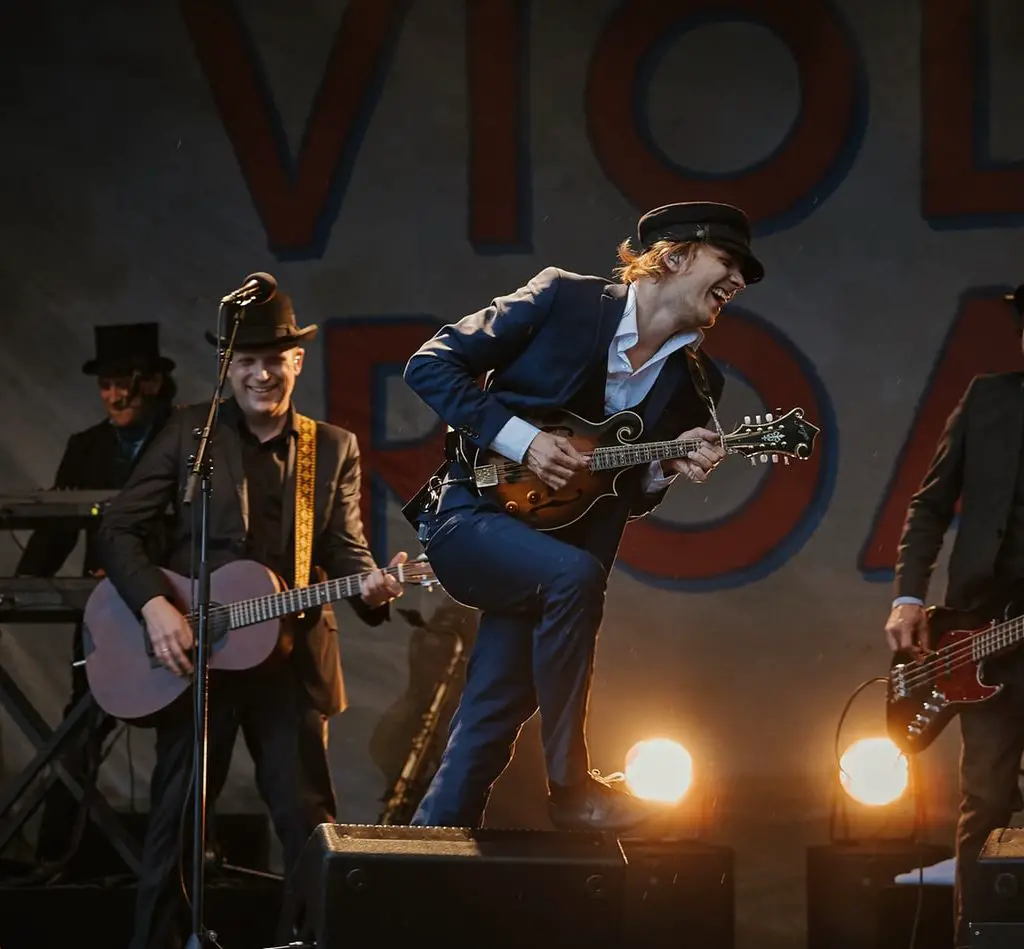
As much as it’s nice to stay in your basement and rock out alone all day, it’s not advisable. As much as you can, try to reach out and play with other musicians. Whether you’re in a band or you’re a solo artist, playing with other musicians teaches you so many things you can’t learn alone.
Things like how to know when it’s “solo time” and when it’s time to just play for the song, how to create music from scratch, and the most important lesson of them all, how to listen. Playing with other people expands your listening ear a lot more than just listening to yourself all the time.
Like the popular saying goes “two heads are better than one”. How about you try sending that wicked riff you’ve recorded to your keyboardist friend. Who knows? He might come up with a wicked harmony, while your drummer friend comes up with a wicked rhythm. And voila! Music.
When You’re Not Practicing — How To Get Good At Guitar
You can’t practice every waking moment of your life. However, even when you’re not actively practicing, there are a few things you can do about how to get good at guitar.
Tip 10 — Listen To Many Different Artists
We are sure you already listen to your favorite artist like every single day. You don’t need to be told that. However, listening to just one or two artists can have a diverse effect in the long run.
You see, what you take in is what you’re ultimately going to give out. So, if you keep listening to just one person, you would end up sounding too much like that person. And there’s no way anyone would want to listen to you when you’re just a fake version of someone else.
So, shake things up. Listen to a lot of different artists from a lot of different genres. This way, you pick up little things from a lot of different people and then add to your own. It might not be original, but it’ll definitely be a unique blend.
- 38-INCH ACOUSTIC GUITAR: Right-handed guitar delivers a full-bodied sound with its all-wood design, 19 frets, steel strings, and an attractive finish
- ULTIMATE STARTER KIT: Perfect for beginner guitarists, it includes a guitar pick, shoulder strap, pitch pipe, digital tuner, and an extra set of 6 strings
- HIGH-QUALITY SOUND: The classical guitar body and user-friendly fretboard help to create a bright sound that both beginning and experienced musicians can enjoy
- CARRYING CASE INCLUDED: Take your show on the road, as this guitar comes with a nylon carrying case that allows for easy storage and portability
- OVERALL DIMENSIONS: 38(L) x 3.25(W) x 14(H)
Prices pulled from the Amazon Product Advertising API on:
Product prices and availability are accurate as of the date/time indicated and are subject to change. Any price and availability information displayed on [relevant Amazon Site(s), as applicable] at the time of purchase will apply to the purchase of this product.
Tip 11 — Be You
Now if you read the previous tip and you were like “well, I want to sound exactly like (insert guitar hero here), then we have an advice for you.
As much as it seems honoring when someone tells you you sound like a guitar hero, if the resemblance becomes uncanny, no one would want to listen to you again.
Music should be an expression of your heart, your experiences, your journey. Each one’s journey is different, and that is why all of us have different expressions of music. So show us your own unique expression.
Because at the end of the day, you can only be the best version of you, not someone else.
Tip 12 — Take A Break
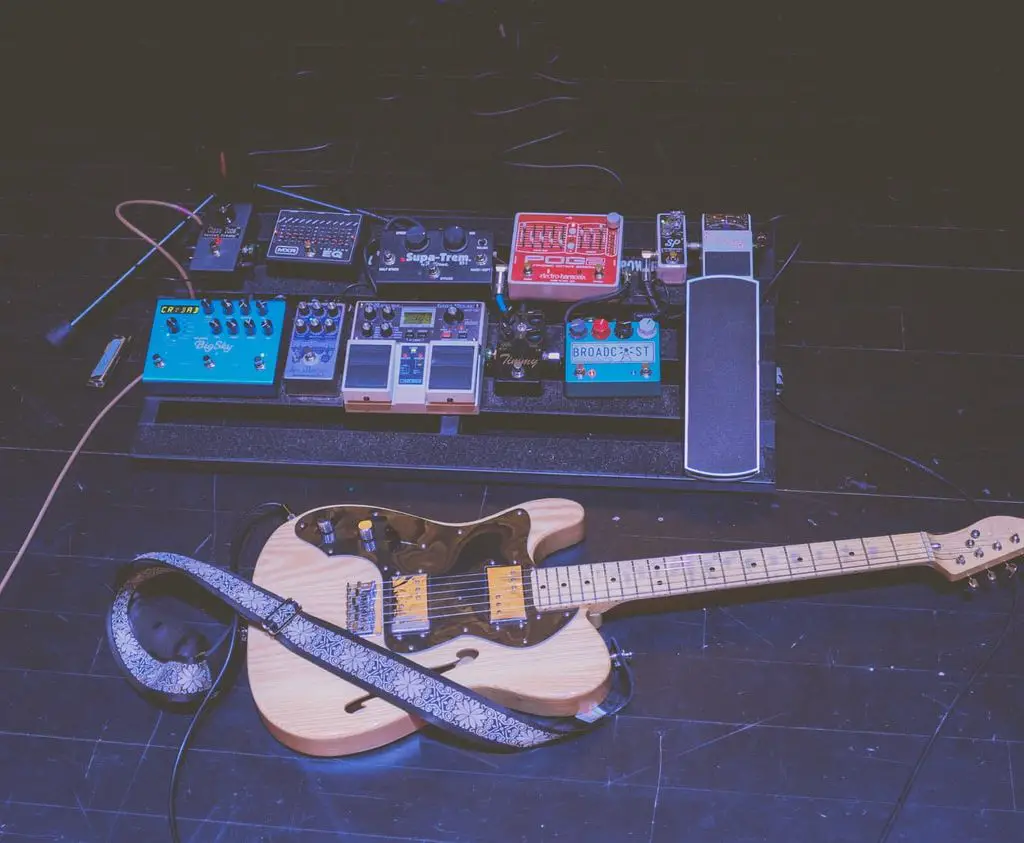
Every once in a while, take a break. It’s okay to keep your guitar locked away for a week, delete all your rock songs and only listen to the sound of ocean waves while you stare into the sun on a warm summer day.
A popular saying goes thus “Absence makes the heart grow fonder”. And we believe it to be true. Take a week off and do something else, don’t even play another instrument. Just do something else that’s not related to music.
When you come back after the break and pick up the guitar, you will definitely miss it. That will spark up new ideas and rejuvenate your relationship with your guitar.
And If All Of These Fail…
Tip 13 — Confidence

Never forget confidence. If you look like you know what you’re doing, chances are your crowd will follow whatever you play. You have to keep in mind that most of the people you’re going to be playing in front of are not music experts.
They wouldn’t know when you missed a note in the riff, or when you played a major scale when you should have played a minor. You know all these things.
So remember, if at all you make a mistake while playing on stage, always be confident. Own the mistake and act like it was your plan all along.
At least that’s what the pros do.
